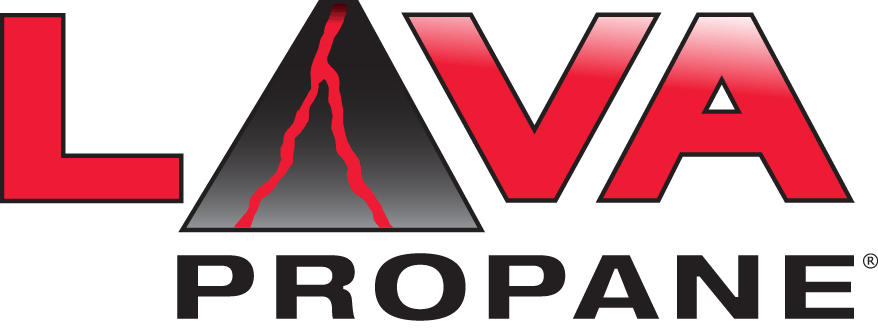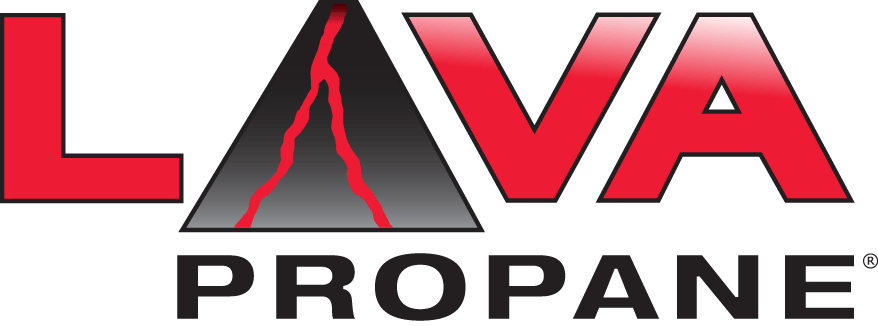Safety tips
Lava Propane Takes Safety Seriously
Here are Guidelines and Tips to Using and Working Safely Around Propane
In Case of Emergency, CALL 911
If You Smell Gas:
- Immediately put out all smoking materials and other open flames.
- If you are able to safely turn off the cylinder valve. To close the valve, turn it to the right (clockwise). If not, isolate the tank away from any possible ignition sources and call your local fire department.
- Before you restart the appliance, have a
qualified service technician inspect your cylinder and appliance.
Storing Propane
- NEVER store or place a propane cylinder indoors or in an enclosed area such as a basement, garage, shed, or tent.
- NEVER store or place a propane cylinder in an area of excessive heat (120 degrees or higher) or near a stove, fireplace, or other heat source. The heat builds up pressure inside the cylinder, which may cause the pressure relief valve to release propane. Flash fires or explosions can result from exposing cylinders to heat.
- NEVER store or place a spare cylinder under or near a barbecue grill.
- DO NOT smoke or have any ignition sources such as flames or spark-producing electrical tools in the area while handling or transporting cylinders.
Transporting Propane
- ALWAYS transport and store a cylinder in a secure and upright position so it will not fall, shift, or roll.
- ALWAYS close the cylinder valve and, if required, seal with a plug, even if the cylinder is empty. Ask your propane retailer if a plug is required.
- NEVER keep a filled cylinder inside a hot vehicle or transport it inside a closed trunk.
- ALWAYS place the cylinder in a well-ventilated area of the vehicle.
- ALWAYS proceed directly to your destination and immediately remove the cylinder from your vehicle.
- The law places limits on the number of cylinders and the amount of propane that can be transported in closed-bodied vehicles such as passenger cars and vans. Ask your propane retailer for more information on state and local codes that apply to you.
For Problems with Cylinders or Appliances:
DO NOT UNDER ANY CIRCUMSTANCES TRY TO MODIFY OR REPAIR VALVES, REGULATORS, OR OTHER CYLINDER OR APPLIANCE PARTS.
Propane cylinders incorporate special components such as valves, connectors, and other parts to keep them safe for use with grills and other propane appliances. Damage to any component can cause a gas leak. DON’T RISK IT! Call your propane retailer or a qualified service technician for assistance.
Checking for leaks:
It is important to inspect your cylinder and outdoor gas appliances for leaks. Do this before using them for the first time each season, as well as on a regular basis. This can be accomplished with a simple “bubble” test:
- Apply leak detector solution or thick soapy water to the connection(s) between the cylinder valve and the regulator outlet. These connections are marked with an “x” on the diagram below.
- Slowly open the cylinder valve and watch for bubbles.
- If bubbles appear, close the cylinder valve, tighten the connection, and repeat the process. If bubbles still appear, call your propane retailer immediately.
Damaged Cylinders:
NEVER use a damaged cylinder or a cylinder that has been in a fire. All cylinders must be inspected before they are refilled. The law requires periodic inspection of cylinders, and it is against the law to refill out-of-date cylinders. The last inspection date is stamped on the cylinder.
NEVER dispose of your propane cylinder by throwing it in the trash. Check to see if there are municipal programs for collection in your area, or contact your propane retailer for guidance on disposal of the cylinder.
MAKE SURE YOUR CYLINDER IS EQUIPPED WITH AN OVERFILL PREVENTION DEVICE (OPD).
An OPD is a safety feature that helps prevent small propane cylinders from being overfilled. An overfilled cylinder doesn’t have enough space left if the liquid expands when exposed to warmer temperatures. This can cause an increase in cylinder pressure and create potentially hazardous conditions.
Most cylinders with OPDs have special triangular handwheels with the letters “OPD” on them. In many states, cylinders without OPDs cannot be refilled. If you are uncertain as to whether your cylinder has an OPD valve on it, ask your propane retailer.

